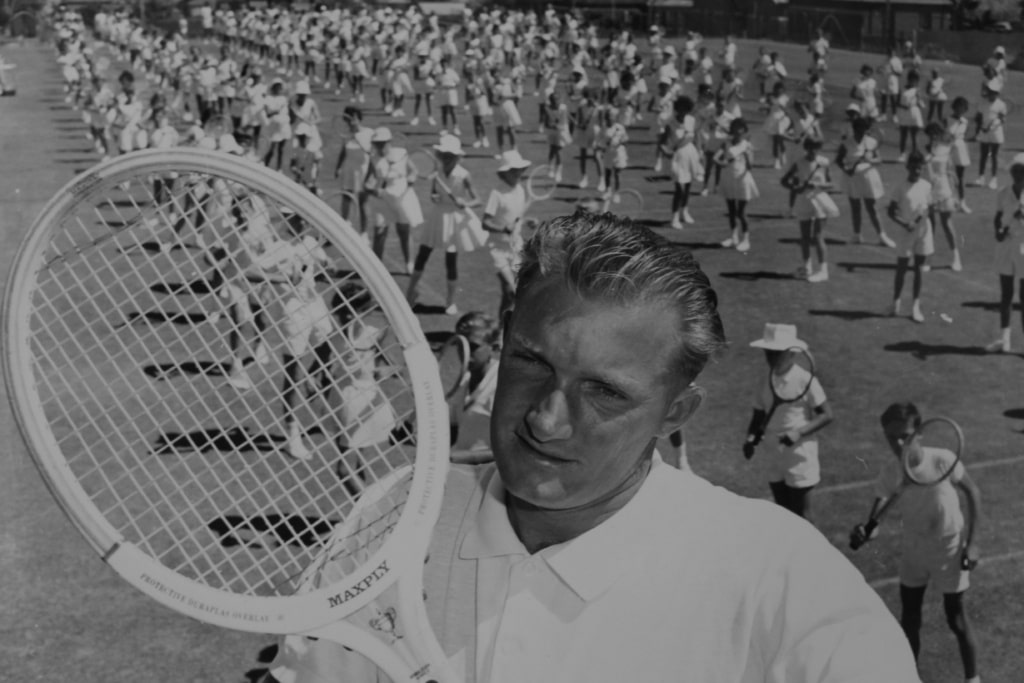Arthur Marshall (47-51)

‘He was a champion of sports, business and politics and a wonderful philanthropist, raising many millions of dollars. There are thousands of WA kids who have a love of tennis and footy because of Dad.’ DIXIE MARSHALL, THE WEST AUSTRALIAN NEWSPAPER, 8 JUNE 2018.
Born in his beloved East Fremantle in 1934, Arthur Marshall attended Wesley from the age of twelve. He graduated in 1951 and served as Hardey House Captain. From an early age, Arthur’s sporting prowess was evident. In 1950, he was a member of Wesley’s General Sports Committee, won the swimming and tennis prizes, and played in the Football 1st XVIII. As a member of the 1950 Slazenger Cup winning team, he received Colours for tennis and was Tennis Captain in 1951.
Arthur’s tennis ability took him around the world during the amateur era and, in 1955, he competed in the Men’s Singles at Wimbledon as a twenty-one-year-old, returning the following year. He also represented Western Australia in tennis, squash and table tennis. In 1958, he established the Arthur Marshall Tennis Academy, coaching more than one hundred state champions and teaching tens of thousands to play tennis across Western Australia.
‘I had to travel a long way to play A-grade tennis; I didn’t want the next generation to have to do that, I wanted to take everything I learned in Europe and bring it here,’ Arthur told the Mandurah Coastal Times in 2017.
Between 1954 and 1961 he played twenty games for the West Australian Football League (WAFL) club East Fremantle. He later served as a football commentator with the Seven Network during the 1980s and wrote a regular column for the Daily News newspaper as well as being a sports editor at radio station 6KY.
Arthur had a strong interest in politics and, in 1993, he won the seat of Murray. In 1996, a redistribution saw him elected in the then new seat of Dawesville. He was re-elected in 2001 before retiring at the 2005 election.
In addition to many public achievements, Arthur helped raise money for the expansion of the Peel Health Campus and was instrumental in the successful push for the Peel Football Club to join the WAFL.
He was awarded the Medal of the Order of Australia in 2006 for service to the community through fundraising for a range of not-for-profit organisations, to sport and to the Parliament of WA.
Perhaps most importantly, Arthur embodied Wesley’s ethos of ‘By daring and by doing’. He was an immensely proud Wesleyan, a fierce competitor in the game of life, and a fitting inductee into the Gallery of Honour.